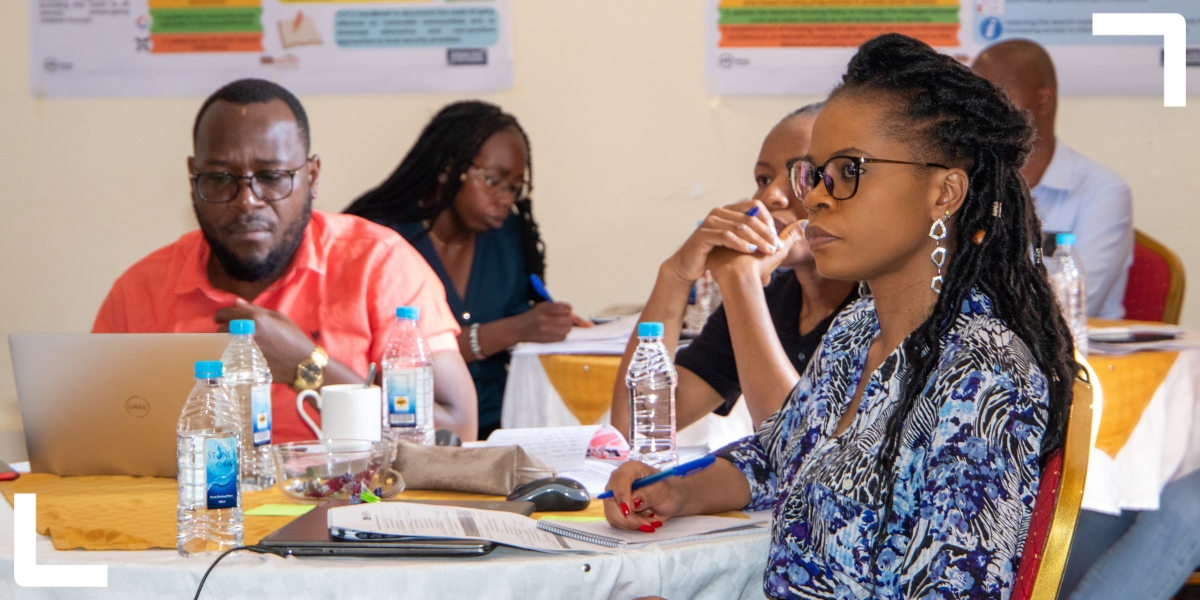By Rosebella Apollo, ACRC research uptake officer
The ACRC Nairobi team convened a final research uptake workshop on 9-10 March 2023. The two-day event aimed to stimulate policymakers, community representatives, county government officials, urban practitioners and professionals, to actively champion reforms for positive urban transformation in the city.
The workshop marked the close of the foundation phase of ACRC research in Nairobi. Over the past two-year period of co-creation and co-production with key stakeholders, ACRC has generated robust knowledge, expanding the frontiers of evidence‐informed decisionmaking in the city. This uptake workshop provided an additional platform for disseminating evidence from ACRC. The proceedings gave a clarion call for stakeholders to take action towards enhanced service delivery, poverty reduction and improving life chances for residents in the city.
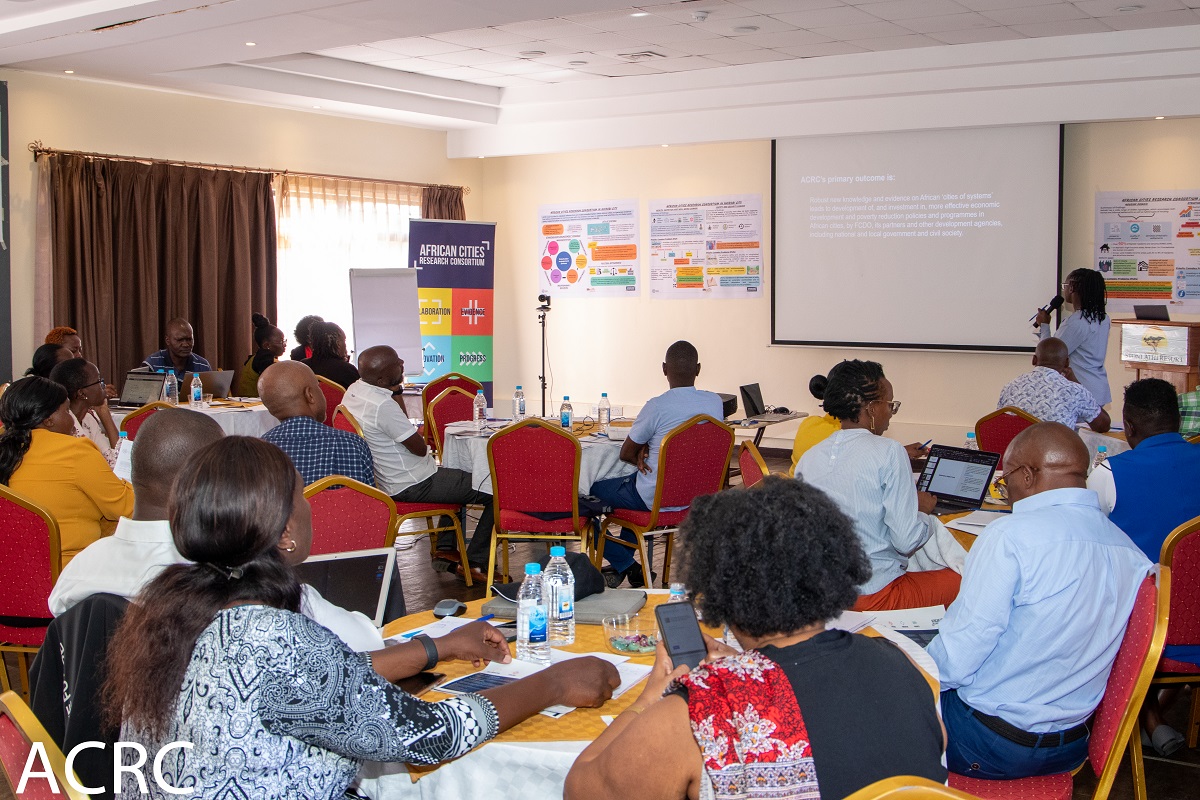
Rosebella Apollo presents an overview of the ACRC programme and theory of change.
Evidence from ACRC research delineated Nairobi as integral to Kenya’s national politics; a hub for trade and business. Politics in Nairobi city directly facilitates or constrains commitment from elites to spur inclusive development. Central to the politics are prevailing ethno-inequalities, regional imbalances and electoral systems that reward ethnic patronage. Although the city has just elected a new governor from the government of the day, he has to work closely with elected officials from the opposition to deliver his mandate in the city.
Based on this analysis, key forces to support potential reforms in the city include the county governor, the Nairobi county assembly, the national executive, civil society organisations, rent seeking political elites and development partners which can build the capacity of state actors.
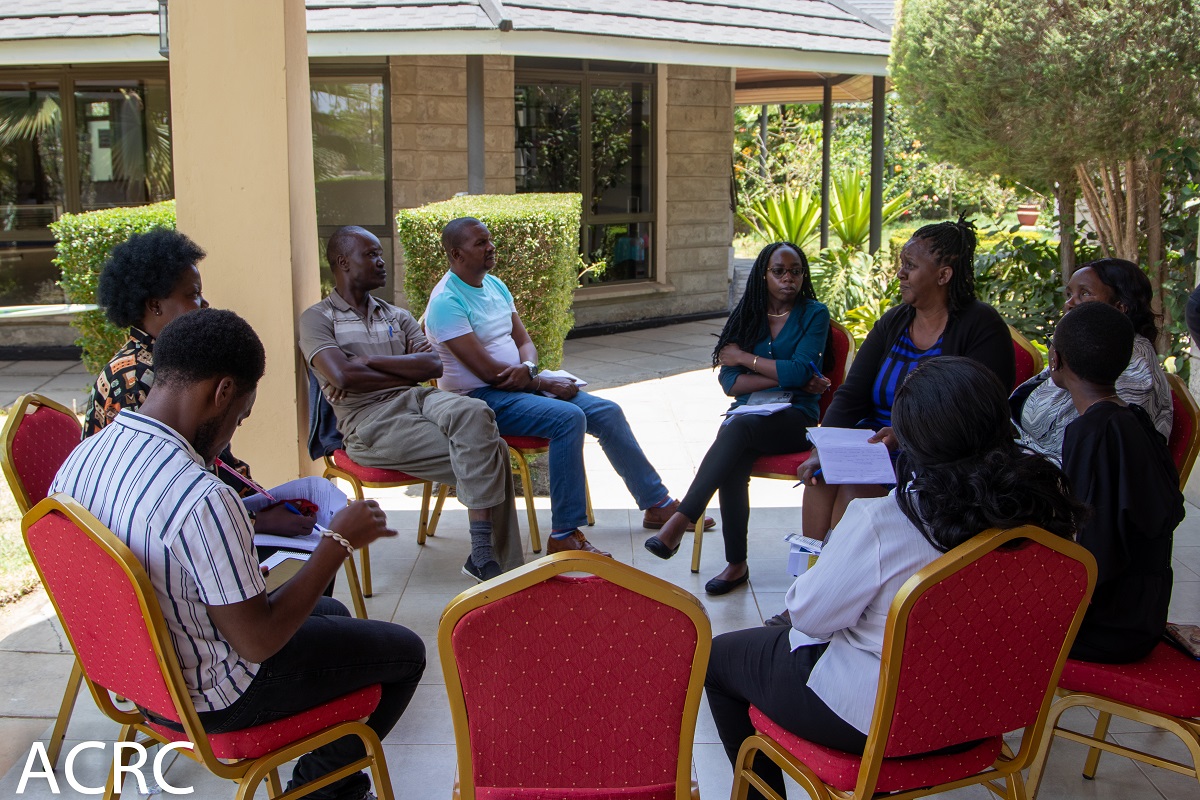
Ongoing deliberations among participants in a health, wellbeing and nutrition breakout session.
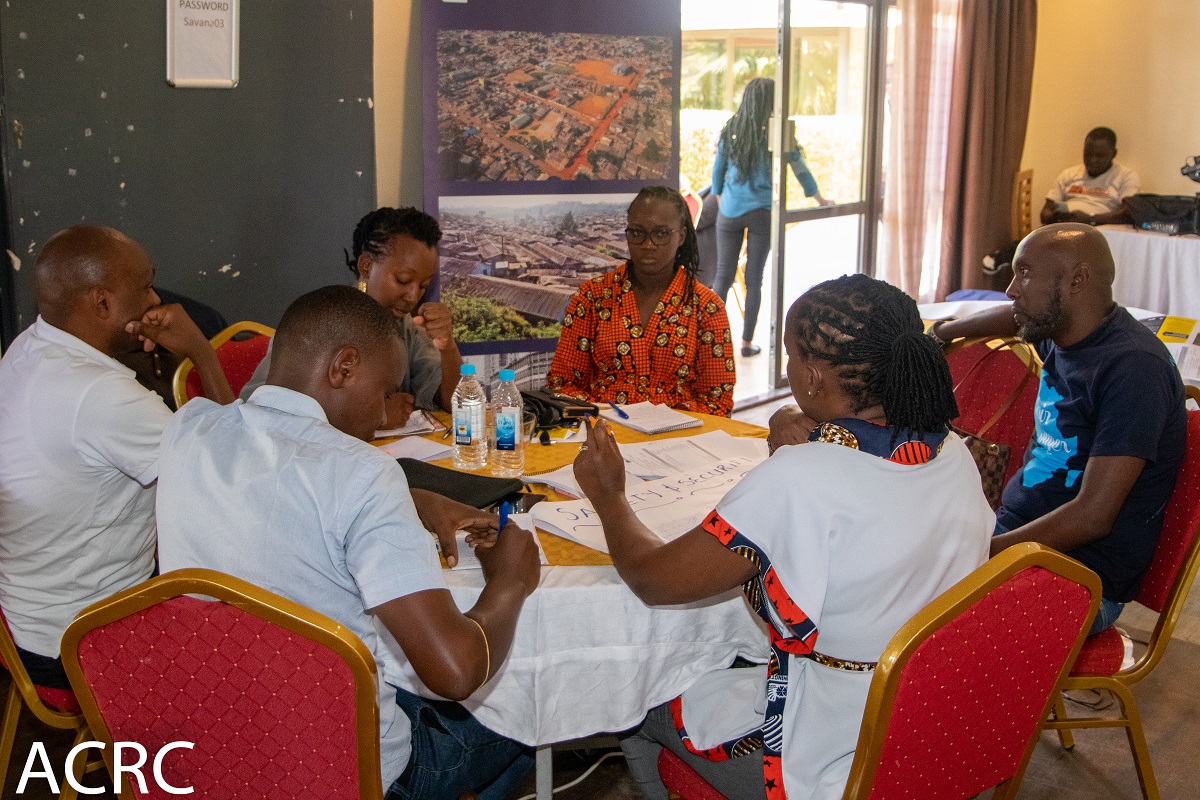
Group discussions on developing an implementation matrix for the housing domain.
Despite capital investments in the city’s infrastructure, Nairobi city systems – namely, transport, education, healthcare, water and sanitation – have been adversely affected by a number of factors. The gap between demand and supply in service delivery is widening; institutional fragmentation is increasing, fostering competition or duplication of roles across national and county government levels; and there is a proliferation of informal service providers, who offer costly and often hazardous services, especially in informal urban settlements. These have resulted in glaring gaps in service delivery and, subsequently, overreliance on private sector and developmental agencies in meeting basic needs for Nairobi’s residents.
Identifying priority complex problems to catalyse urban reform
Further to analysing Nairobi’s political systems, ACRC engaged in domain analysis, to explore city programming and policy frameworks in four of ACRC’s eight thematic areas: health, wellbeing and nutrition (HWN), housing, structural transformation, and safety and security. Research from these urban development domains yielded a total of ten priority complex problems (PCPs), identified as areas having clear potential to catalyse urban reforms in the city.
Based on insights from politically informed systems analysis and emerging evidence, stakeholders across multiple sectors engaged in Nairobi proposed a number of actionable pathways as entry points for initiating small pockets of urban reforms in the city.
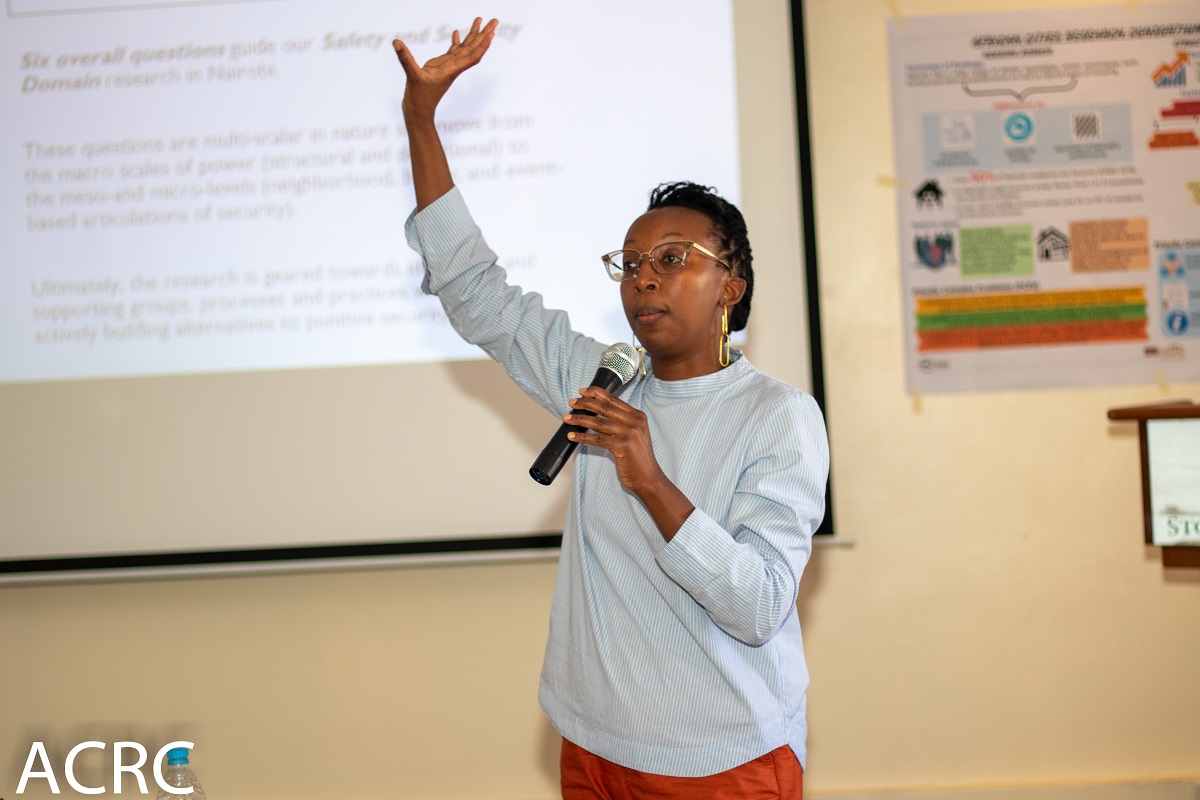
Presentation on the safety and security domain research in Nairobi.
Safety and security
For safety and security, the PCP focused on addressing the safety concerns of children in increasingly volatile areas. Stakeholders proposed broadening the PCP to encompass protection, reclaiming, rehabilitation and recreation of public spaces to make child-friendly playground and recreational spaces. This would include the rehabilitation of riparian land and renovation of social halls, amongst other avenues that are part of ongoing efforts with traction in the county government priorities.
Stakeholders also reiterated the need to champion ongoing efforts on street lighting by the Mobility and Works Department. Provision of street lighting in the city has the potential for multiplier effects in several frontiers of addressing security in the city.
Proposed interventions for this domain would make modest contributions to poverty reduction, improved living conditions, concerted efforts to address climate change, and increasing life chances for city residents from disadvantaged communities.
Health, wellbeing and nutrition
Within the HWN portfolio, it was noted that the county government was keen on mainstreaming the school feeding programme in all of the city’s 17 sub-counties. This intervention resonated well with the HWN domain’s PCP on improving the health and nutrition conditions of children living in informal settlements.
Political commitment from elites to advance access to healthy diets amongst school going children is likely to foster an enabling environment for ACRC to articulate this PCP, that will improve the life chances of schoolgoing children.
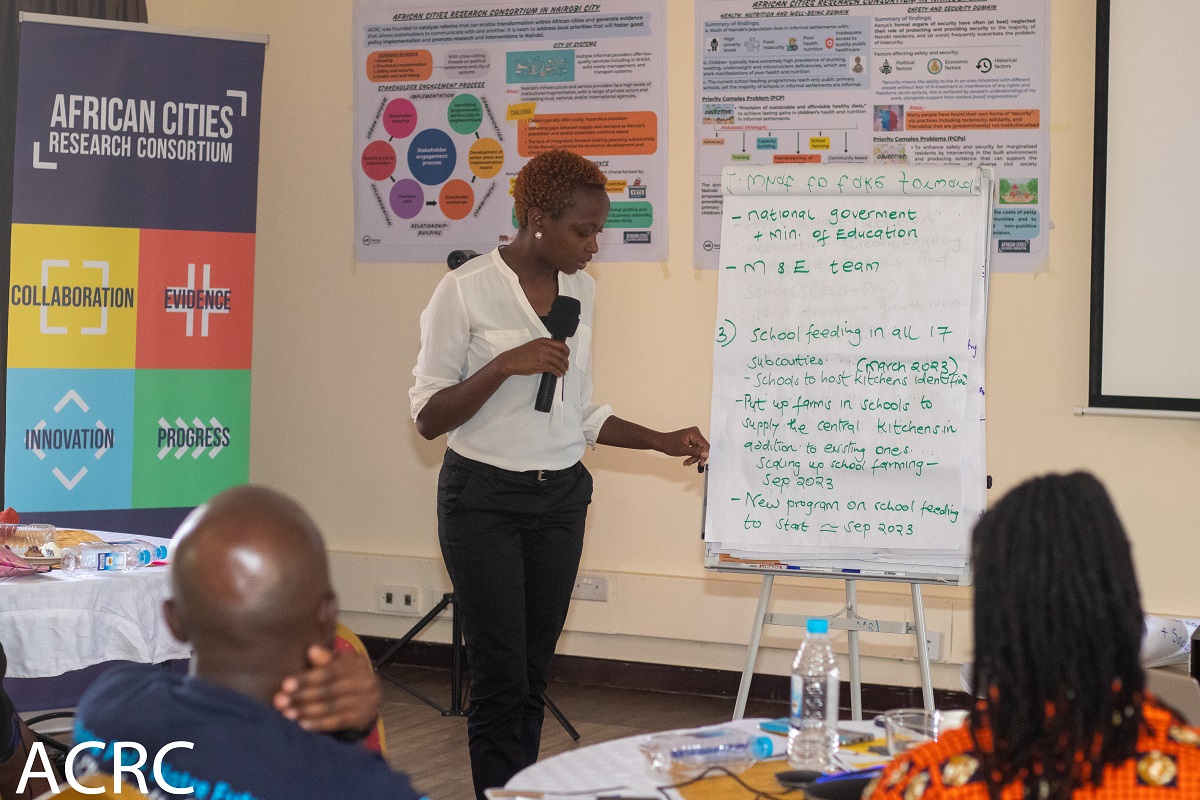
Presentation on the proposed implementation plan for a school feeding programme in Nairobi.
Housing
For housing, evidence from ACRC will directly inform formulation of the Nairobi City metropolitan housing policy and updating the national housing policy that is currently under review. Stakeholders proposed the establishment of a housing research lab as part of a long-term solution to addressing the needs of renters in the housing sector, while promoting sustainable housing models that would meet occupational needs, safety standards and climate adaption thresholds for residents. The housing interventions are geared at improving the living conditions of city dwellers.
Structural transformation
Structural transformation, on the other hand, focused on how to embrace informality, especially when it comes to unregistered service providers (cartels). Formulation of an enabling trade policy and collaborations with the county’s hawker strategy committee as an informal reform coalition were cited as possible strategic pathways to address this challenge.
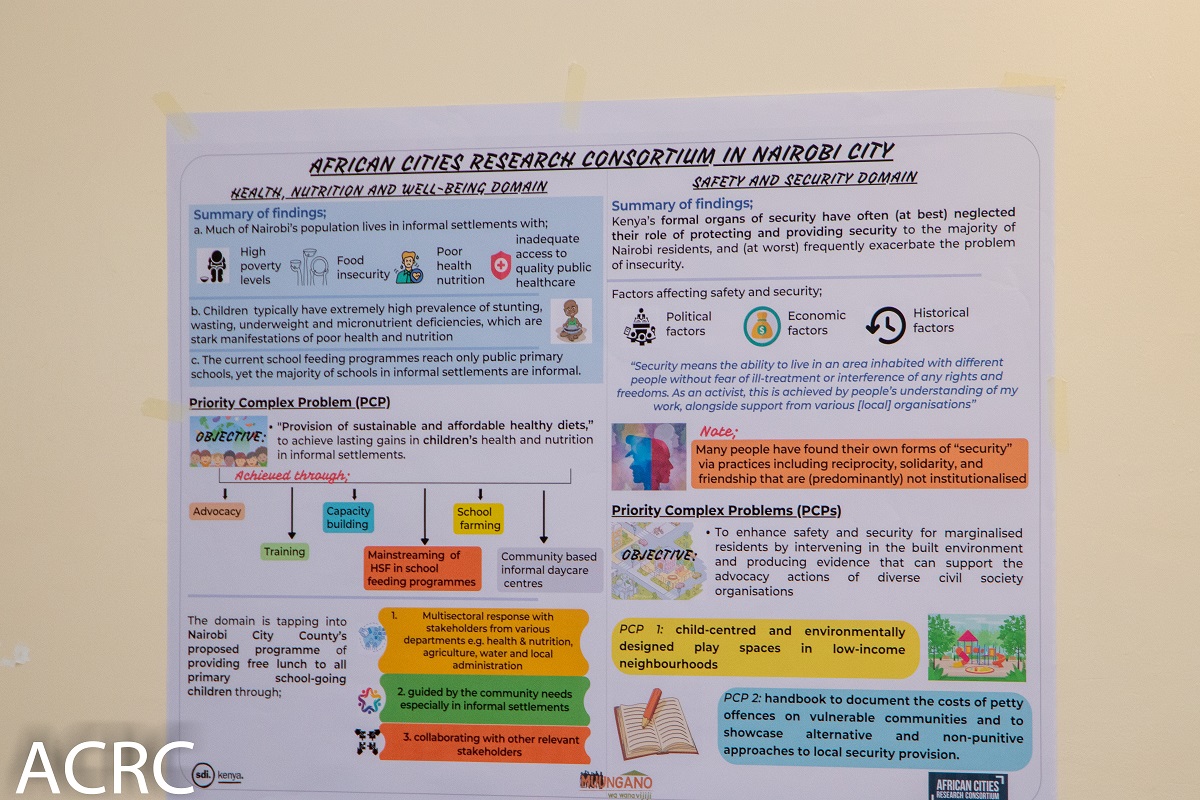
Key findings and emerging priority complex problems from the health, wellbeing and nutrition and safety and security domains.
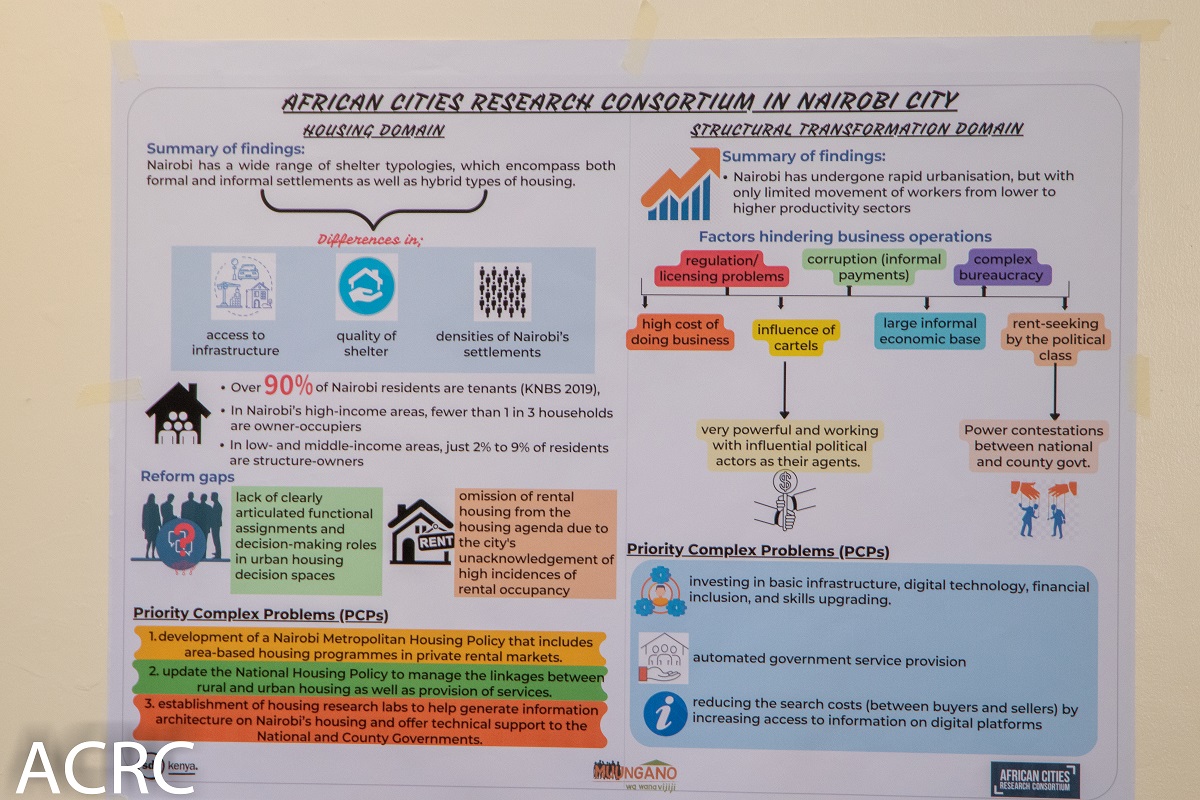
Key findings and emerging priority complex problems from the housing and structural transformation domains.
Curating and disseminating evidence to accelerate reforms
Overall, evidence and proposed interventions from ACRC were key in the county climate change plan, particularly the multisectoral county climate action plan that looked to coalesce efforts from various sectors through interventions that mitigate, build resilience and foster adaption for climate change.
The county research department proposed to curate evidence from ACRC in its digital library, for future reference and collaborations. To harness the power of communities, there is need for the ACRC research uptake team to increase avenues of dissemination of evidence from ACRC research and to raise awareness of local communities about ongoing government projects, so that they can push for reforms and demand accountability from the county government. Even as ACRC cities await a decision on progression to the action research phase, a number of interventions proposed from ACRC research are being implemented in Nairobi, with potential for accelerating reform in the city.
Download the report below for a more in-depth summary of the discussions and outcomes from the workshop.
Photo credits: Know Your City TV
Note: This article presents the views of the author featured and does not necessarily represent the views of the African Cities Research Consortium as a whole.
The African Cities blog is licensed under Creative Commons Attribution-NonCommercial-NoDerivatives 4.0 International (CC BY-NC-ND 4.0), which means you are welcome to repost this content as long as you provide full credit and a link to this original post.

